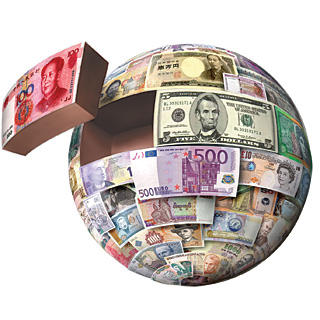
In the analysis, Jessica Shearer and colleagues at Johns Hopkins University examine national decisions to introduce Hib conjugate vaccines. They use information from 147 countries over a 17 year time period - 1990 to 2007 - to identify factors that are associated with accelerating (or decelerating) policy decisions to adopt this life-saving vaccine. The findings point to an important role for donors.
Not surprisingly, the study finds that higher prices are an obstacle to vaccine uptake and that GAVI Alliance support has helped to accelerate policy decisions to use the vaccine in low-income countries. Perhaps most importantly, however, the study shows that it is the financial predictability that the GAVI Alliance provides to developing countries that is the real accelerator.
"While high vaccine prices hinder adoption, the absence of long-term, stable financing policies at the global level had an even more detrimental effect," said Jessica Shearer, lead author of the study.
In short, when the GAVI Alliance has struggled to provide clear, unambiguous policies on the terms of the financing it will give to countries, the result is that countries have failed to adopt vaccines. Given the fact that price is a significant challenge for these countries, and that GAVI financing (when the policies are set and clear) overcomes these obstacles, this is not a surprising finding.
Of course, developing countries have many legitimate and pressing problems that impact their ability to implement vaccines. There are inadequate human resources (the 'brain drain' to the North), shortcomings in transportation and delivery systems, and a lack of effective disease surveillance programs. All of these are important issues and ones that donors can contribute to solving - but none are uniquely within the control of donors to solve.
Already there are troubling signs that the donors have failed to see the impact of their unique role. At the last GAVI Board meeting in November 2009, they decided to "pause" the process of review and application of new applications for Hib, pneumococcal and rotavirus vaccines. This decision sent a chilling effect throughout the interconnected system of WHO, UNICEF, and developing country governments that make GAVI successful and have diminished the momentum that was built in developing countries over the past few years.
Next week GAVI's donors will sit together in the Netherlands and consider new pledges to support GAVI's work. Many will no doubt be looking to the Gates Foundation, which recently announced $10 billion in funding for vaccine research, development, and delivery over the next 10 years to fix this problem. But in this case, Bill Gates is just not rich enough to fill this gap on his own. Other donors must step up and help to fill the breach as well.
When they meet, I hope that they take stock of the findings from the new research as a powerful reminder that the ability to provide predictable financing to procure new, life-saving vaccines is the one unique donor role in the complex vaccine process. The new study shows with research what we've always believed based on experience: when donors fail to provide the needed financing, it leads to predictable delays in the use of new, life-saving vaccines and the unnecessary loss of millions of children's lives.
